Discover NucleCast
NucleCast

NucleCast
Author: ANWA Deterrence Center
Subscribed: 34Played: 2,074Subscribe
Share
© ANWA Deterrence Center 2022
Description
Welcome to NucleCast, the official podcast of the ANWA Deterrence Center. NucleCast is an engaging, educational podcast featuring a series of discussions and interviews with experts in nuclear policy, technology, and deterrence. The show is hosted by Dr. Adam Lowther, Strategic Advisor to the ANWA Deterrence Center and an expert on nuclear deterrence.
253 Episodes
Reverse
Dr. Ben Zweibelson, a retired US Army officer and author of "Bad War Stories" delves into the complexities of military planning, particularly in the context of nuclear deterrence and the lessons learned from two decades of conflict in Iraq and Afghanistan. Dr. Zweibelson discusses how traditional military strategies often fall short in real-world applications, emphasizing the need for innovation and adaptability in military doctrine. He shares personal anecdotes from his deployments, highlighting the emotional toll of war and the disconnect between military operations and strategic outcomes. Dr. Zweibelson's book, "Bad War Stories," serves as a critique of the glorified narratives often portrayed in Hollywood, contrasting them with the harsh realities faced by soldiers. He argues that many military professionals are trapped in outdated thinking, which hinders effective planning and execution. The episode concludes with a discussion on the future of nuclear strategy in light of emerging technologies like artificial intelligence and quantum computing, stressing the importance of curiosity and innovation in military institutions.Socials:Follow on Twitter at @NucleCastFollow on LinkedIn: https://linkedin.com/company/nuclecastpodcastSubscribe RSS Feed: https://rss.com/podcasts/nuclecast-podcast/Rate: https://podcasts.apple.com/us/podcast/nuclecast/id1644921278Email comments and topic/guest suggestions to NucleCast@anwadeter.org
In this episode of NucleCast, Adam talks with Professor John Copper, a leading expert on Taiwan, to discuss the complex history and current geopolitical landscape of Taiwan. The conversation explores Taiwan's identity, its relationship with China, and the implications of US-China relations. Professor Copper emphasizes the exaggerated urgency of China's reunification efforts and highlights Taiwan's unique position as a democracy in a region of authoritarianism. The discussion also touches on the historical context of Taiwan's development, the challenges it faces, and the potential paths forward for its future.Dr. John F. Copper is the Stanley J. Buckman Distinguished Professor of International Studies (emeritus) and author of more than 40 books on Asia and international affairs. His newest book is Taiwan's Presidents: Profiles of the Majestic Six (Routledge, 2024).00:00 Introduction to Taiwan's Complex History02:11 Current Geopolitical Tensions and Perspectives 17:07 Historical Context of Taiwan's Identity26:09 Wishes for Taiwan's Future RelationsSocials:Follow on Twitter at @NucleCastFollow on LinkedIn: https://linkedin.com/company/nuclecastpodcastSubscribe RSS Feed: https://rss.com/podcasts/nuclecast-podcast/Rate: https://podcasts.apple.com/us/podcast/nuclecast/id1644921278Email comments and topic/guest suggestions to NucleCast@anwadeter.org
Professor Hugh White from the Australian National University discusses the evolving security landscape in the Asia-Pacific region, particularly in light of China's rise as a global power. The conversation explores the implications of the US-China rivalry for Australia, the role of allies, and the necessity of nuclear deterrence in maintaining regional stability. White expresses concern about Australia's reliance on the US and the need for a more self-reliant defense strategy as the geopolitical dynamics shift. The discussion culminates in White's wishes for clearer strategic understanding and cooperation among nations in addressing the challenges posed by China.Hugh White AO is Emeritus Professor of Strategic Studies at the Australian National University. His work focuses primarily on Australian strategic and defence policy, Asia-Pacific security issues, and global strategic affairs especially as they influence Australia and the Asia-Pacific.He has served as an intelligence analyst with the Office of National Assessments, as a journalist with the Sydney Morning Herald, as a senior adviser on the staffs of Defence Minister Kim Beazley and Prime Minister Bob Hawke, and as a senior official in the Department of Defence, where from 1995 to 2000 he was Deputy Secretary for Strategy and Intelligence, and as the first Director of the Australian Strategic Policy Institute (ASPI).In the 1970s he studied philosophy at Melbourne and Oxford Universities. He was the principal author of Australia’s 2000 Defence White Paper.His major publications include Power Shift: Australia’s future between Washington and Beijing, [2010], The China Choice: Why America should share power, [2012], Without America: Australia’s future in the New Asia [2017], and How to defend Australia [2019]Chapters00:00 Introduction to Australian Security Perspectives02:14 The Rise of China and Its Implications05:45 Australia's Strategic Dilemmas09:28 Military Dynamics in the US-China Rivalry13:44 The Role of Allies in Regional Security19:36 China's Global Ambitions and Regional Responses24:07 Nuclear Deterrence in a Changing Landscape29:28 Wishes for Future Strategic ClaritySocials:Follow on Twitter at @NucleCastFollow on LinkedIn: https://linkedin.com/company/nuclecastpodcastSubscribe RSS Feed: https://rss.com/podcasts/nuclecast-podcast/Rate: https://podcasts.apple.com/us/podcast/nuclecast/id1644921278Email comments and topic/guest suggestions to NucleCast@anwadeter.org
This is part two of a discussion featuring Dr. Byron Ristvet. The episode delves into the intricacies of nuclear testing, covering topics such as the history and types of nuclear tests conducted by the United States, Russia, and China. Byron shares insights into the technical and strategic aspects of nuclear testing, including the development and safety testing of nuclear weapons, the evolution of testing methods, and the challenges faced in maintaining nuclear readiness. The conversation also touches on the importance of deterrence and the current state of nuclear testing infrastructure.Socials:Follow on Twitter at @NucleCastFollow on LinkedIn: https://linkedin.com/company/nuclecastpodcastSubscribe RSS Feed: https://rss.com/podcasts/nuclecast-podcast/Rate: https://podcasts.apple.com/us/podcast/nuclecast/id1644921278Email comments and topic/guest suggestions to NucleCast@anwadeter.org
In this episode of NucleCast, Adam talks with Dr. Byron Ristvet to discuss the complexities of nuclear testing, its historical context, and the current state of nuclear readiness. They delve into the types of nuclear tests, the role of various laboratories, and the controversial history surrounding Rocky Flats. The conversation highlights the importance of understanding nuclear policy and the implications of testing in today's geopolitical landscape.Currently, Dr, Ristvet is a consultant to Sandia National Laboratory and Lawrence Livermore National Laboratory for studies on nuclear test detection, and through Keystone International and MSTS, a consultant to LANL, DoE IN-1 and NNSA/NFO. He is a Senior Mentor in Sandia’s Weapons Intern and Professional Development programs, and low yield nuclear monitoring research. Prior to his semi-retirement in February 2017, Dr. Ristvet was a senior subject matter expert (SME) to DTRA’s Research and Development Directorate in the areas of nuclear and conventional weapons effects and testing, hard and deeply-buried-target characterization and defeat, counter-terrorism, cooperative threat reduction, knowledge preservation, nuclear test readiness, and to the Defense Threat Reduction Information Analysis Center. Prior to the underground nuclear testing (UGT) moratorium in 1992, he was the UGT containment scientist for the Defense Nuclear Agency. Based on his experience, he is an advisor to the U.S. intelligence community on foreign nuclear programs. Dr. Ristvet had a key role in DoD’s Cooperative Threat Reduction efforts with the Russian Federation nuclear laboratories and the Kazakhstan National Nuclear Center. He is currently an Octant Associates consultant for DTRA nuclear proliferation prevention activities at the Semipalatinsk Test Site in Kazakhstan. Chapters00:00 Introduction to Nuclear Testing and Its Importance01:20 Understanding Nuclear Testing: Types and History05:38 Current State of Nuclear Testing and Readiness09:05 The Role of Laboratories in Nuclear Weapons Development13:34 Debunking Myths: The Rocky Flats Controversy18:27 Types of Nuclear Testing Conducted19:54 Key Takeaways and Future ConsiderationsSocials:Follow on Twitter at @NucleCastFollow on LinkedIn: https://linkedin.com/company/nuclecastpodcastSubscribe RSS Feed: https://rss.com/podcasts/nuclecast-podcast/Rate: https://podcasts.apple.com/us/podcast/nuclecast/id1644921278Email comments and topic/guest suggestions to NucleCast@anwadeter.org
In this episode of NucleCast, Ben Souther discusses the complexities of managing data in large projects, particularly focusing on the requirements from various stakeholders, including government regulations and internal procedures. He emphasizes the importance of navigating through extensive data to ensure successful project execution.Ben Souther is the general manager of the Environmental and Security business line of Bechtel’s Nuclear, Security, and Environmental global business unit. Ben is an accomplished professional with more than 20 years of extensive experience and knowledge in automation, engineering, construction, delivery, and project management positions for Bechtel. His current portfolio includes the oversight of multiple government projects, operating sites, and national laboratories focused on nuclear security and nuclear waste management for the U.S. Department of Energy.Ben joined Bechtel on the Waste Treatment Plant project in 2002 supporting project automation efforts and in 2006 he began working on the Pueblo Chemical Agent-Destruction Pilot Plant project serving in various roles in project controls and construction. Other previous senior leadership roles include deputy project manager, business manager, and vice president of the Bechtel LLC working for the U.S. Army on Kwajalein Atoll in the Marshall Islands in 2011. He served as executive assistant to the president of NS&E from 2013 to 2015 and then went on to become an M&BD manager for the Defense & Security business line.He received his bachelor’s in business administration (Cum Laude) (Management Information Systems) from Washington State University and is PMI Project Management Professional (PMP) certified.Socials:Follow on Twitter at @NucleCastFollow on LinkedIn: https://linkedin.com/company/nuclecastpodcastSubscribe RSS Feed: https://rss.com/podcasts/nuclecast-podcast/Rate: https://podcasts.apple.com/us/podcast/nuclecast/id1644921278Email comments and topic/guest suggestions to NucleCast@anwadeter.org
In this episode of NucleCast, host Adam Lowther engages in a thought-provoking conversation with Rob Kittinger, a seasoned expert from Sandia National Labs. They delve into the critical role of human factors in nuclear safety and explore the intriguing dynamics of the AI race between the US and China. From the potential pitfalls of human error to the strategic implications of AI advancements, this episode offers a deep dive into the challenges and opportunities shaping our nuclear future. "Other examples of color vision affecting job safety can be found here: https://waggonerdiagnostics.com/pages/law-enforcement "Robert Kittinger, Ph.D. is a Senior Fellow at the National Institute for Deterrence Studies (NIDS). He spent nearly 10 years at Sandia National Laboratories, culminating in the Nuclear Threat Science department and working in Nuclear Emergency Support and Counterterrorism & Counter-Proliferation (CTCP). During his time at Sandia, he was also a 2017 graduate of the prestigious Weapon Intern Program (WIP).Before joining Sandia, Dr. Kittinger spent over five years as a civilian in the U.S. Navy and was part of a five-person tech startup, BookLamp, which was acquired by Apple in 2013. Following his tenure at Sandia, he served as a senior researcher at Amazon and currently holds the role of Chief Research Officer at a MedTech company.Socials:Follow on Twitter at @NucleCastFollow on LinkedIn: https://linkedin.com/company/nuclecastpodcastSubscribe RSS Feed: https://rss.com/podcasts/nuclecast-podcast/Rate: https://podcasts.apple.com/us/podcast/nuclecast/id1644921278Email comments and topic/guest suggestions to NucleCast@anwadeter.org
Adam sits down with Curtis McGiffin—strategist, educator, and co-author—to explore his groundbreaking argument for redefining national instruments of power. Curtis introduces DIMET, adding “Technology” to the traditional DIME framework, and explains why high-tech capabilities have become a standalone measure of national strength. The discussion dives into how technological innovation is reshaping deterrence, influencing global power dynamics, and driving the future of warfare. Plus, Curtis shares insights from the National Institute for Deterrence Studies’ proposed Nuclear Posture Review, offering bold recommendations for strengthening U.S. nuclear deterrence in an era of rapid change.Link to Paper: Curtis McGiffin, DIMET: Shaping the Age of “Techno-Strategic” Power, No. 637, September 22, 2025 – NippSocials:Follow on Twitter at @NucleCastFollow on LinkedIn: https://linkedin.com/company/nuclecastpodcastSubscribe RSS Feed: https://rss.com/podcasts/nuclecast-podcast/Rate: https://podcasts.apple.com/us/podcast/nuclecast/id1644921278Email comments and topic/guest suggestions to NucleCast@anwadeter.org
In this episode of NucleCast, Adam interviews Brian Groft, a senior leader at Systems Planning and Analysis (SPA), to discuss the A&AS mission and its significance in supporting the Department of Defense. Groft shares insights on the role of A&AS contractors, the importance of DTRA in nuclear operations, and the differences between various types of contracting. They also discuss the future of DTRA, the costs associated with government versus contractor roles, and the need for improved collaboration between contractors and government agencies.Brian Groft possesses 16 years of experience leading teams of scientists and engineers providing technical advisory services to government customers responsible for challenging homeland security and national defense missions. He serves as the Strategic Growth Manager for SPA which includes providing executive leadership in the defense and homeland security industry with emphasis in chemical, biological, radiological, nuclear, and explosive defense (CBRNE), Counter WMD, System Engineering, and R&D fields.Socials:Follow on Twitter at @NucleCastFollow on LinkedIn: https://linkedin.com/company/nuclecastpodcastSubscribe RSS Feed: https://rss.com/podcasts/nuclecast-podcast/Rate: https://podcasts.apple.com/us/podcast/nuclecast/id1644921278Email comments and topic/guest suggestions to NucleCast@anwadeter.org
In this conversation, Brent Sadler discusses the critical importance of maritime issues in relation to national security and economic stability. He emphasizes the need for a dedicated maritime advisor to the president and highlights the current gaps in leadership within the Navy's shipbuilding sector. The conversation underscores the necessity of interagency coordination to ensure timely delivery of warships and the overall revival of American maritime strength.Brent Sadler joined Heritage Foundation after a 26-year Navy career with numerous operational tours on nuclear powered submarines, personal staffs of senior Defense Department leaders, and as a military diplomat in Asia. As a Senior Research Fellow, Brent’s focus is on maritime security and the technologies shaping our future maritime forces, especially the Navy.Brent is a 1994 graduate with honors of the United States Naval Academy with a degree in Systems Engineering (robotics) and a minor in Japanese. As a 2004 Olmsted Scholar in Tokyo, Japan, he studied at Keio University, Jochi University and the United Nations University. He has a master of arts from Jochi University and master of science from National War College, where he graduated with distinction in 2011 and received several writing and research awards.In 2011, he established the Navy Asia Pacific Advisory Group (NAPAG), providing regionally informed advice directly to Chief of Naval Operations’ (CNO). He again served on the CNO’s personal staff in 2015-2016, playing a key role in developing the Defense Department’s Third Offset. At Pacific Command from 2012-2015, he held numerous key positions. As lead for Maritime Strategy and Policy, he incorporated all 10 Association of Southeast Asian Nations (ASEAN) into the first regional maritime domain awareness forum and was instrumental in the eventual passage of the $500 million-dollar Maritime Security Initiative. As Special Advisor on Japan, and a Council of Foreign Relations International Affairs Fellow in Tokyo, he played a key role in revising the U.S. and Japan Defense Guidelines. As Deputy Director Strategic Synchronization Group, he oversaw a think-tank like body of over 30 advisors and analysts. Brent led the Commander’s Rebalance Task Force coordinating execution of the President’s Defense Strategic Guidance—Rebalance to the Asia-Pacific resulting in over $12 billion USD of additional monies budgeted in fiscal years 2013 through 2015 during a time of fiscal austerity.Following his final tour on CNO’s staff, Brent returned to Asia as Senior Defense Official, Defense and Naval Attaché in Malaysia. During his tenure he played a key role in coordinating responses to the USS McCain collision in August 2017, opened several politically sensitive ports and airfields to U.S. forces, oversaw unprecedented expansion of U.S. military relations, and steadied relations during the historic May 2018 national elections ushering in an opposition party for the first time since independence.Socials:Follow on Twitter at @NucleCastFollow on LinkedIn: https://linkedin.com/company/nuclecastpodcastSubscribe RSS Feed: https://rss.com/podcasts/nuclecast-podcast/Rate: https://podcasts.apple.com/us/podcast/nuclecast/id1644921278Email comments and topic/guest suggestions to NucleCast@anwadeter.org
Adam interviews Dr. Kyle Balzer and Bob Peters on their recent article in Breaking Defense. They discuss the future of the Sentinel ICBM program, particularly the potential for mobile basing options. They explore the cost implications, strategic effectiveness, and the need for political engagement to advocate for a more robust nuclear deterrent. The conversation emphasizes the importance of adapting to a changing threat environment, particularly with the rise of peer competitors like China, and the necessity of public discourse on nuclear strategy.Kyle Balzer is a Jeane Kirkpatrick Fellow at the American Enterprise Institute, where he specializes in US nuclear strategy and policy. He is currently working on a book project, The Revivalist: James R. Schlesinger and the Rebirth of Cold War U.S. Nuclear Strategy. It examines the origins of diagnostic net assessment and competitive nuclear strategies. His work has been published in Breaking Defense, National Review Online, The Hill, The National Interest, and War on the Rocks. Robert J. Peters is Chief of the Strategic Integration Directorate within the Strategic Trends and Effects Department (STED) at the Defense Threat Reduction Agency (DTRA). He leads efforts to generate actionable insights on counter-WMD and emerging threats, assess agency effectiveness, and foster strategic dialogues with allies through research and exercises.Previously, Peters was a Senior Research Fellow at the National Defense University’s Center for the Study of Weapons of Mass Destruction. He also served as Special Assistant to the DASD for Countering WMD at the Office of the Secretary of Defense-Policy, and held roles at Northrop Grumman and the Potomac Institute.He holds an MA in National Security Studies from Georgetown University and a BA in Political Science and History from Miami University. His published work includes articles in Strategic Studies Quarterly, 38 North, and the Nonproliferation Review.Article Link: Forge ahead with the Sentinel ICBM, but consider making it mobile - Breaking DefenseSocials:Follow on Twitter at @NucleCastFollow on LinkedIn: https://linkedin.com/company/nuclecastpodcastSubscribe RSS Feed: https://rss.com/podcasts/nuclecast-podcast/Rate: https://podcasts.apple.com/us/podcast/nuclecast/id1644921278Email comments and topic/guest suggestions to NucleCast@anwadeter.org
Join us for an insightful conversation with Brian Zieroth, Senior Program Manager at the Uranium Processing Facility (UPF) at Y-12. Discover the pivotal role UPF plays in supporting the nation's nuclear deterrent and global security missions. Brian shares the challenges and triumphs of modernizing uranium processing capabilities, emphasizing the importance of safety and innovation. With construction set to complete in 2027, UPF is poised to be a cornerstone of national security infrastructure. Don't miss this deep dive into a project that ensures our strategic deterrent remains robust and reliable.Brian is the senior project manager for the Uranium Processing Facility (UPF) in Oak Ridge, Tennessee, a plant designed to replace older, outdated facilities and meet modern safety and environmental standards. He is responsible for all engineering, procurement, construction, and startup activities. He has nearly 30 years’ experience with Bechtel, and is a Bechtel Principal Vice President. Brian brings diverse industry experience to his leadership role for the UPF project. He has held project management roles of increasing responsibility at the Waste Treatment and Immobilization Plant (WTP) at the Hanford site, the Chemistry and Metallurgy Replacement Project (CMRR) at Los Alamos National Laboratory, UPF, and as Director for Enterprise Line-Item Projects at Consolidated Nuclear Security, where he provided oversight for the Y-12 site in Oak Ridge and the Pantex Plant in Amarillo, TX. In 2022, he became area project manager for the main processing building at UPF, before being named to his current role in 2024.He joined Bechtel in 1997 in the Information Systems and Technology group for Bechtel Enterprises. In 2003, he became deputy IS&T manager on the Iraq reconstruction project in Baghdad. In 2006, he moved to the U.S. Department of Energy Advanced Mixed Waste Treatment Project in Idaho. He was then named plant automation manager at the Pueblo Chemical Agent-Destruction Pilot Plant in 2010 and chief information officer at WTP in 2012.Socials:Follow on Twitter at @NucleCastFollow on LinkedIn: https://linkedin.com/company/nuclecastpodcastSubscribe RSS Feed: https://rss.com/podcasts/nuclecast-podcast/Rate: https://podcasts.apple.com/us/podcast/nuclecast/id1644921278Email comments and topic/guest suggestions to NucleCast@anwadeter.org
Dr. Michaela Dodge discusses the ongoing conflict between Russia and the West, emphasizing the need for the United States to recognize and respond to Russia's aggressive actions. The conversation explores the historical context of Russia's imperial ambitions, the challenges of mobilizing public support for defense spending, and the importance of education in fostering informed citizens. Dodge argues that the U.S. must take adversarial threats seriously and prepare accordingly to ensure national security and global stability.Socials:Follow on Twitter at @NucleCastFollow on LinkedIn: https://linkedin.com/company/nuclecastpodcastSubscribe RSS Feed: https://rss.com/podcasts/nuclecast-podcast/Rate: https://podcasts.apple.com/us/podcast/nuclecast/id1644921278Email comments and topic/guest suggestions to NucleCast@anwadeter.org
Adam welcomes Major General Colin Connor where he focuses on the modernization of the Intercontinental Ballistic Missile (ICBM) system, specifically the Sentinel ICBM. Major General Connor, who leads the modernization efforts at Air Force Global Strike Command, shares insights into the challenges and progress of the Sentinel program. The conversation covers the importance of maintaining the Minuteman 3 system until Sentinel is fully operational, the complexities of modernizing infrastructure, and the critical role of collaboration with industry partners. The episode emphasizes the strategic significance of ICBMs in national security and the ongoing efforts to ensure the new system meets future needs.Socials:Follow on Twitter at @NucleCastFollow on LinkedIn: https://linkedin.com/company/nuclecastpodcastSubscribe RSS Feed: https://rss.com/podcasts/nuclecast-podcast/Rate: https://podcasts.apple.com/us/podcast/nuclecast/id1644921278Email comments and topic/guest suggestions to NucleCast@anwadeter.org
Dr. Tony Peurrung, a senior leader in data science, explores the evolution and significance of data science, particularly in the context of national security. He discusses the historical development of data science, its applications in various fields, and the challenges faced in implementing data-driven solutions. The conversation also touches on the competitive landscape of data science between the U.S. and its adversaries, emphasizing the need for collaboration and innovation to harness the full potential of data science in addressing national security challenges.Dr. Peurrung is recently retired after a 31-year career at Pacific Northwest National Laboratory during which he made varied contributions as leader, scientist, and technology developer. His culminating executive leadership roles held between 2010 and 2024 included Associate Laboratory Director for National Security, Chief Research Officer, and Deputy Laboratory Director for Science and Technology. In his role as Deputy Director for Science and Technology, Dr. Peurrung stewarded PNNL's science and technology capabilities to address critical challenges in science, energy, the environment, and national security. He also played a leading role in institutional strategy development, managed PNNL's internal investment portfolio, and held responsibility for technology commercialization activities. As Associate Laboratory Director he was responsible for all aspects of the laboratory’s national security mission portfolio including strategy development, leadership development, programmatic execution, and financial management. Under his leadership, PNNL delivered impactful science and technology to sponsors in the Department of Energy, Department of Homeland Security, Department of Defense, the National Nuclear Security Administration, and other mission sponsors.Socials:Follow on Twitter at @NucleCastFollow on LinkedIn: https://linkedin.com/company/nuclecastpodcastSubscribe RSS Feed: https://rss.com/podcasts/nuclecast-podcast/Rate: https://podcasts.apple.com/us/podcast/nuclecast/id1644921278Email comments and topic/guest suggestions to NucleCast@anwadeter.org
Gordon Chang discusses the significant threats posed by the Chinese Communist Party under Xi Jinping. They explore China's imperial ambitions, the mindset of its leadership, the implications for Taiwan, and the potential for conflict. Gordon also delves into China's nuclear ambitions and the ongoing warfare through means such as fentanyl trafficking, emphasizing the need for Americans to recognize and respond to these threats.Socials:Follow on Twitter at @NucleCastFollow on LinkedIn: https://linkedin.com/company/nuclecastpodcastSubscribe RSS Feed: https://rss.com/podcasts/nuclecast-podcast/Rate: https://podcasts.apple.com/us/podcast/nuclecast/id1644921278Email comments and topic/guest suggestions to NucleCast@anwadeter.org
Tristan Tang discusses Taiwan's security dilemma in the face of increasing threats from China. The conversation explores the Taiwanese perspective on military preparedness, defense spending, and the expectations of U.S. support in the event of a conflict. Tristan shares insights on the societal attitudes towards the threat of invasion, the military strategies being employed, and the potential consequences of a Chinese takeover. The discussion concludes with Tristan's wishes for Taiwan's future, emphasizing the need for peace, political harmony, and strong U.S. military presence in the region.K. Tristan Tang is an associate fellow at the Research Project on China’s Defense Affairs, Secure Taiwan Associate Corporation, and a member of the Pacific Forum’s Young Leaders Program. His research focuses on China’s defense industry and the People’s Liberation Army. His work has appeared in the U.S. Naval War College’s CMSI Note, U.S. Air University’s Journal of Indo-Pacific Affairs, the Jamestown Foundation’s China Brief, the Pacific Forum’s PacNet, the Australian Strategic Policy Institute’s The Strategist, and The Diplomat. He frequently posts overview maps of PLA activities around Taiwan and across the Pacific on X (@KTristanTang) and LinkedIn. He is also the founder of KTT’s wargame, a popular science simulation of cross-strait conflict scenarios designed for non-military experts and the general public.Socials:Follow on Twitter at @NucleCastFollow on LinkedIn: https://linkedin.com/company/nuclecastpodcastSubscribe RSS Feed: https://rss.com/podcasts/nuclecast-podcast/Rate: https://podcasts.apple.com/us/podcast/nuclecast/id1644921278Email comments and topic/guest suggestions to NucleCast@anwadeter.org
In this episode of NucleCast, Adam interviews Dr. Rich Tighe, the president and CEO of Consolidated Nuclear Security, discussing the current operations and future outlook of the Y-12 National Security Complex. Rich explains the complex's historical significance, its current missions, and the challenges it faces in workforce recruitment and safety. The conversation also touches on modernization efforts, collaboration with design agencies, and the importance of community support. Rich shares his aspirations for the future, including the need for continued growth and innovation in nuclear security.Richard (Rich) Tighe is president and chief executive officer of Consolidated Nuclear Security, the Bechtel led management and operating contractor for the Y 12 National Security Complex in Oak Ridge, Tennessee, with a workforce of approximately 9,500. Tighe (pronounced “tie”) joined CNS in September 2022, and led the company through the separation of the Pantex Plant from CNS’s management and operating contract. Before the separation, Tighe led a combined 13,500 employees through significant growth and record performance. As the National Nuclear Security Administration mission and project scope grew at the sites, CNS met all deliverables to the military under Tighe’s leadership. Additionally, during his tenure, CNS added more than 1,500 team members, including engineers, scientists, professional staff, and craft workers, and both sites improved safety performance, achieving more than 12.6 million consecutive hours without a lost time injury. Under Tighe’s leadership, CNS has been awarded a 2-year contract extension at Y-12.Before joining CNS, Tighe served for nearly 4 years as president and general manager of National Aerospace Solutions (NAS), the Bechtel-led test operations and sustainment contractor for the Arnold Engineering Development Complex at Arnold Air Force Base near Tullahoma,Tennessee. He also was manager of strategy, marketing, and business development for Bechtel’s Nuclear, Security, and Environmental global business unit, an $8 billion business. He served as the NS&E representative to the Bechtel Group Marketing and Business Development Committee and represented Bechtel on the board of managers for NAS and Kwajalein Range Services.Tighe joined Bechtel in 2006 as marketing and business development manager; he was elected principal vice president in 2016 and senior vice president in 2023. Before his service with Bechtel, Tighe worked for Lockheed Martin at the Nevada Test Site for more than a decade, holding several scientific and management posts and ultimately advancing to assistant general manager for high-hazard test and evaluation.Tighe was a postdoctoral fellow in the Nuclear Science Division of the Lawrence Berkeley National Laboratory at the University of California.He earned a Ph.D. in experimental nuclear physics from the University of Notre Dame, Indiana, and a B.S. in physics from Loras College in Dubuque, Iowa.Socials:Follow on Twitter at @NucleCastFollow on LinkedIn: https://linkedin.com/company/nuclecastpodcastSubscribe RSS Feed: https://rss.com/podcasts/nuclecast-podcast/Rate: https://podcasts.apple.com/us/podcast/nuclecast/id1644921278Email comments and topic/guest suggestions to NucleCast@anwadeter.org
General Tom Bussiere, the commander of Air Force Global Strike Command, discusses the modernization of the nuclear triad, including the challenges and progress of the Sentinel system, updates on the B-21 program, and the importance of long-range stand-off capabilities. He emphasizes the need for support and understanding of the nuclear enterprise and shares insights on recent operations and future goals. Gen. Thomas A. Bussiere is Commander, Air Force Global Strike Command and Commander, Air Forces Strategic - Air, U.S. Strategic Command, Barksdale Air Force Base, Louisiana. AFGSC provides strategic deterrence, global strike capability, and combat support to USSTRATCOM and other geographic combatant commands. The command is comprised of more than 33,700 professionals operating at two numbered air forces; 12 active duty, Air National Guard, and Air Force Reserve wings; and the Joint Global Strike Operations Center. Weapons systems assigned to AFGSC include all U.S. Air Force intercontinental ballistic missiles and bomber aircraft, UH-1N helicopters, E-4B National Airborne Operations Center aircraft, and the U.S. Air Force NC3 weapons system. Gen. Bussiere is a 1985 distinguished graduate of Air Force ROTC from Norwich University. He has held a variety of flying, staff and command assignments including the Deputy Director for Nuclear, Homeland Defense and Current Operations, Joint Staff; Inspector General, Headquarters, AFGSC; Advanced Programs Division, Headquarters, Air Combat Command and duty as the Deputy Chief of Staff, Multi-National Force-Iraq, Camp Victory, Baghdad. He commanded the 325th Bomb Squadron, 13th Bomb Squadron, 509th Operations Group and the 509th Bomb Wing at Whiteman AFB, Missouri. He also served as the Commander, Alaskan Command, United States Northern Command; Commander, Eleventh Air Force, Pacific Air Forces; and Commander, Alaskan North American Aerospace Defense Command Region, Joint Base Elmendorf-Richardson, Alaska; Commander, Eighth Air Force; Commander, Joint-Global Strike Operations Center, Barksdale AFB, Louisiana, and Commander, Joint Functional Component for Global Strike; Commander, Task Force 204, U.S. Strategic Command, Offutt AFB, Nebraska. Gen. Bussiere is a graduate of the School of Advanced Air and Space Studies and the U.S. Army War College Advanced Strategic Arts Program. Prior to his current position, Gen. Bussiere served as Deputy Commander, USSTRATCOM. Gen. Bussiere is a command pilot with more than 3,400 hours in the T-38 Talon, F-15C Eagle, B-2A Spirit, B-1B Lancer and F-22 Raptor. He led F-15C combat missions during operations Southern Watch and Vigilant Warrior and B-2 combat missions during operations Allied Force and Iraqi Freedom. Socials:Follow on Twitter at @NucleCastFollow on LinkedIn: https://linkedin.com/company/nuclecastpodcastSubscribe RSS Feed: https://rss.com/podcasts/nuclecast-podcast/Rate: https://podcasts.apple.com/us/podcast/nuclecast/id1644921278Email comments and topic/guest suggestions to NucleCast@anwadeter.org
In this episode of NucleCast, Gibum Kim from the Korean Institute for Defense Analysis to discuss the recent political changes in South Korea, particularly the impact of the new Democratic Party leadership on foreign policy, especially regarding North Korea and the US-South Korea alliance. They explore the philosophical differences between the political parties regarding denuclearization, the future of the US-South Korea alliance, and the challenges posed by China. The conversation concludes with Gi-bum's wishes for the future of South Korea's security and international relations.Gibum KIM is an associate research fellow at the Korea Institute for Defense Analyses (KIDA). He leads the Current Issues Team under the Future Strategy Office. Before becoming the Team Lead, his research focused on issues pertaining to the ROK-U.S. alliance, U.S. nuclear strategy and extended deterrence, and defense space strategy at the Center for Security and Strategy. He was formerly a research associate at both the Office of the Vice President for Research and the Center for Foreign Policy and National Security of the Asan Institute for Policy Studies (AIPS) in Seoul. Mr. Kim was a member of the Pacific Forum Young Leaders Program from 2014 to 2019. He earned both an MA and BA in Political Science at the College of Political Science and Economics, Korea University, and is pursuing his doctoral degree at his alma mater. His research interests include issues related to nuclear strategy, nonproliferation, alliance politics, defense space strategy, and multilateral security cooperation in the Indo-Pacific region.Socials:Follow on Twitter at @NucleCastFollow on LinkedIn: https://linkedin.com/company/nuclecastpodcastSubscribe RSS Feed: https://rss.com/podcasts/nuclecast-podcast/Rate: https://podcasts.apple.com/us/podcast/nuclecast/id1644921278Email comments and topic/guest suggestions to NucleCast@anwadeter.org






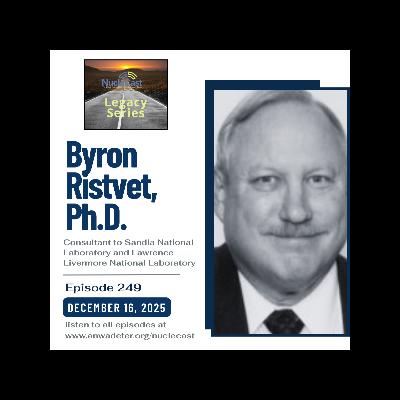
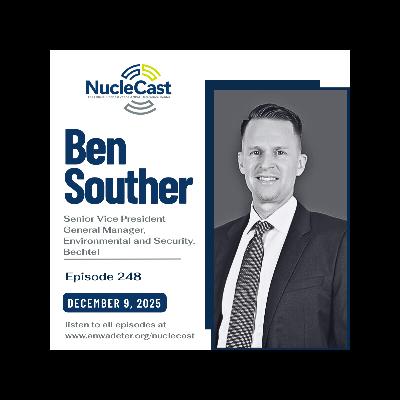
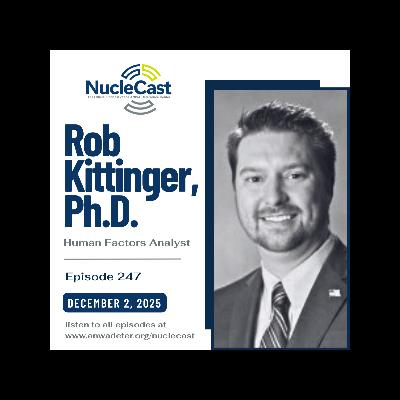
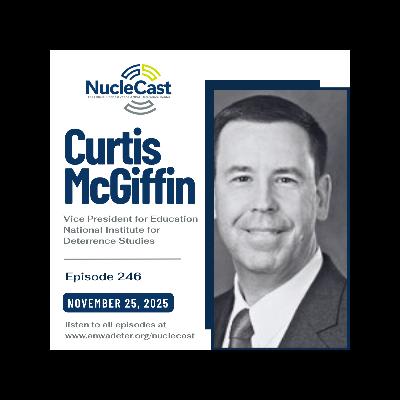
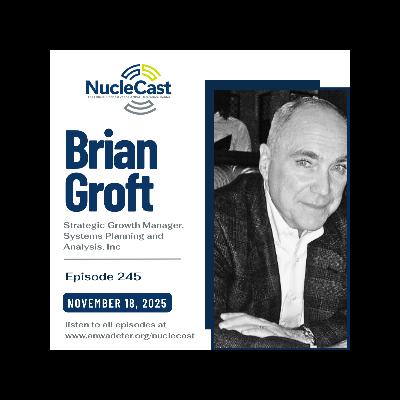
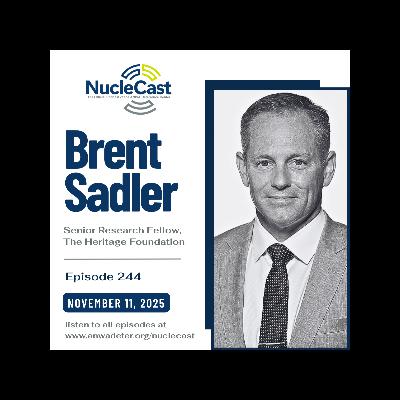
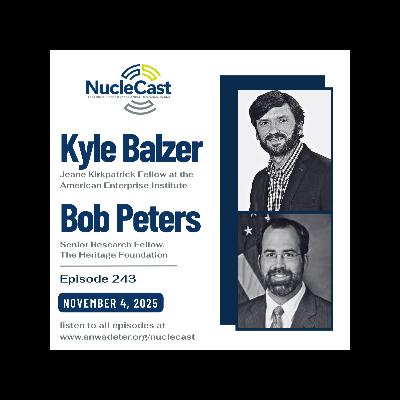
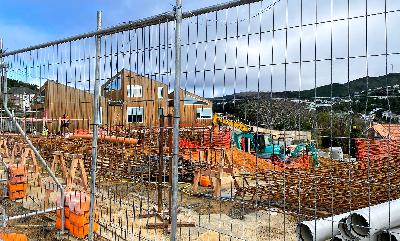

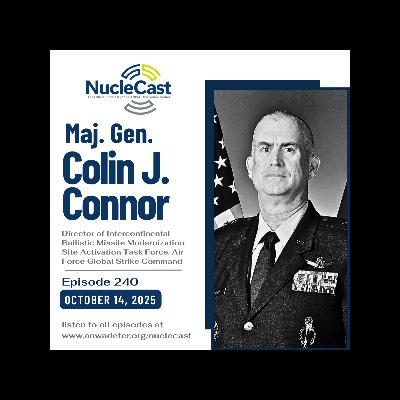

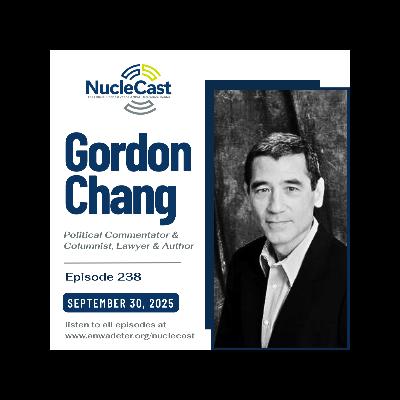
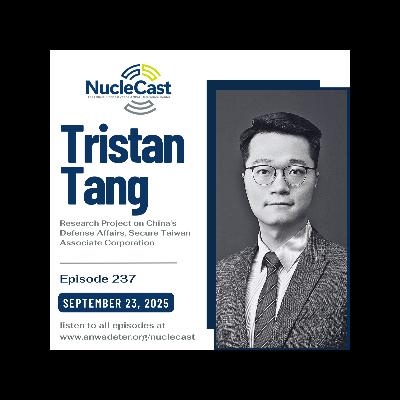
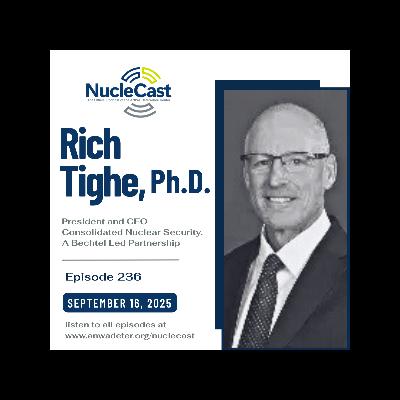
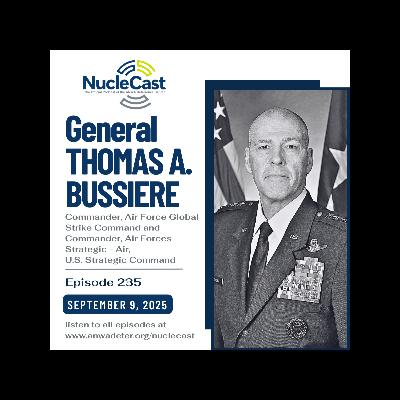
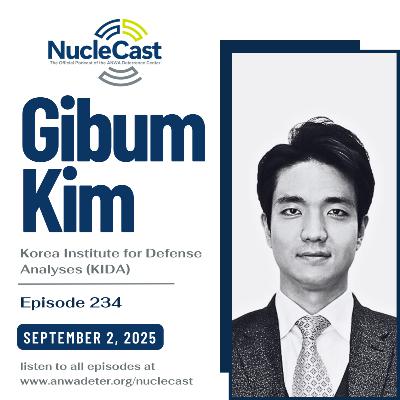



🔴✅📺📱💻ALL>Movies>WATCH>ᗪOᗯᑎᒪOᗩᗪ>LINK>👉https://co.fastmovies.org